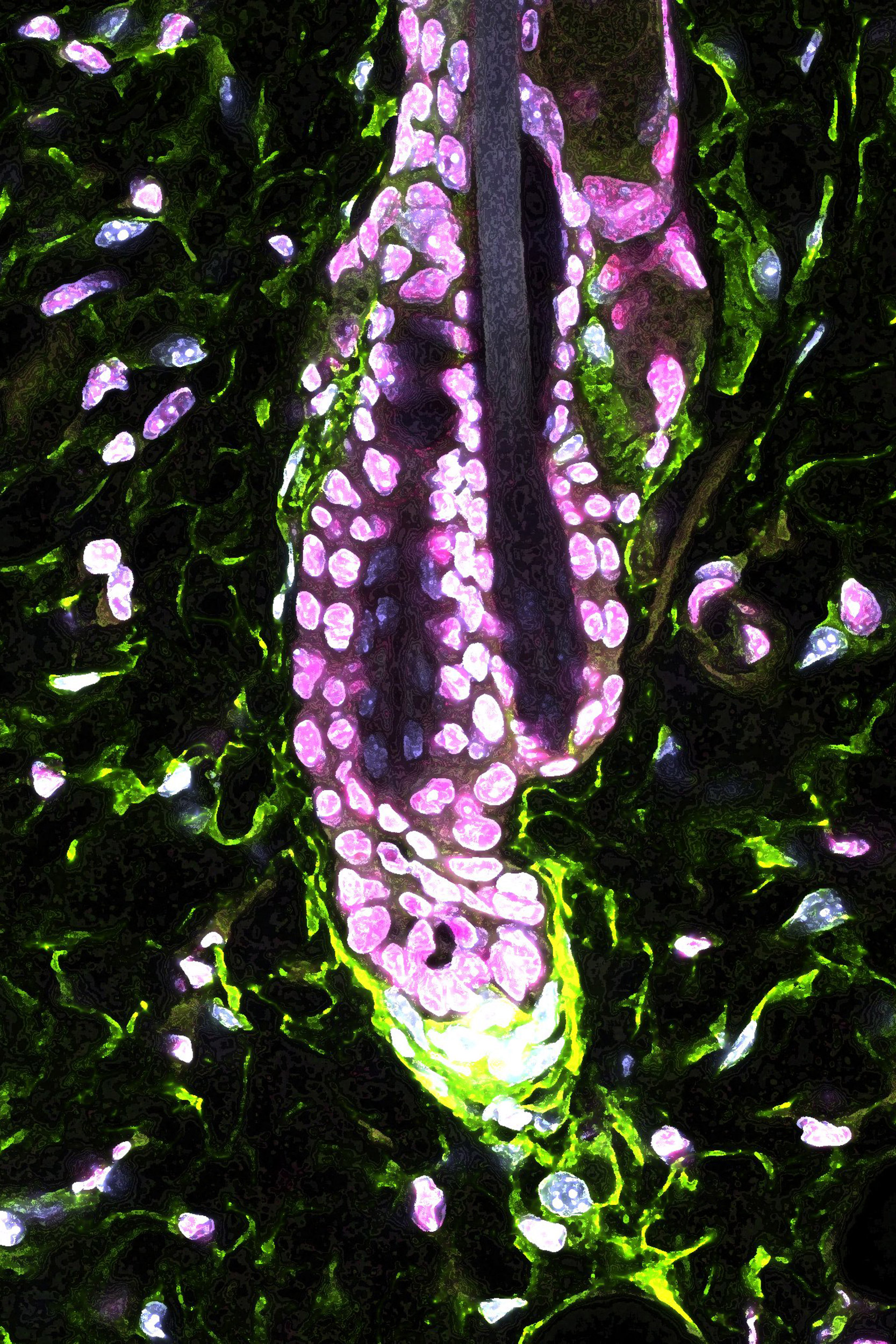Stress can cause muscle tension and decreased blood flow in the scalp, affecting the supply of nutrients to hair follicles and contributes to hair loss.
Stress is an integral part of the modern human experience, often perceived as an inevitable consequence of a fast-paced lifestyle.
While it is well-documented that stress can have deleterious effects on overall health, including cardiovascular diseases¹, gastrointestinal disorders², and impaired immune function³, it is less widely acknowledged that it can also significantly impact hair health, even leading to hair loss.
According to the American Academy of Dermatology, various stressors, such as major surgery, serious illness, drastic weight loss, and emotional stress, can induce telogen effluvium⁵.
Stress can also exacerbate another type of hair loss known as alopecia areata, an autoimmune condition where the body's immune system attacks hair follicles, resulting in patchy hair loss⁶. Although the exact causes of alopecia areata are unknown, researchers have suggested a link between this condition and stress. A 2018 study published in the 'Journal of Investigative Dermatology' established a connection between stress and alopecia areata, observing that stress hormones could exacerbate the condition⁷.
The biochemical mechanisms linking stress to hair loss are complex and multifaceted. At a physiological level, stress stimulates the release of cortisol, often referred to as the 'stress hormone'. Elevated cortisol levels can disrupt the hair growth cycle, pushing more hair follicles into the telogen phase and leading to increased hair shedding⁸. Furthermore, cortisol can also promote inflammation and oxidative stress, which can damage hair follicles and contribute to hair loss⁹.
Simultaneously, the release of neuropeptides and neurotransmitters like substance P and nerve growth factor during a stressful event can trigger inflammation in hair follicles, disrupting their normal cycle and causing premature hair shedding¹⁰. Additionally, stress can cause muscle tension and decreased blood flow in the scalp, affecting the supply of nutrients to hair follicles and potentially contributing to hair loss¹¹.
LEARN HOW THE
ADVANCED+ HAIR FORMULA
CONTRIBUTES TO A REDUCTION IN STRESS
Managing stress can play a crucial role in preventing or reducing hair loss. Regular exercise, a balanced diet, sufficient sleep, and relaxation techniques like yoga and meditation can help manage stress levels¹³. For individuals already experiencing hair loss, treatments may include over-the-counter minoxidil, prescription treatments like finasteride, and in some cases, corticosteroid injections¹⁴. Despite these links, it's important to note that not everyone who experiences stress will suffer from hair loss. Genetic factors, nutritional status, and overall health can all influence the relationship between stress and hair loss¹².
In conclusion, while stress is an established contributing factor to hair loss, understanding the underlying mechanisms can help in developing effective preventive strategies and treatments. If you are experiencing significant hair loss, it's important to consult with a healthcare provider to determine the appropriate course of action.
References:
1 Stress and Cardiovascular Disease
3 Stress, Illness and the Immune System
5 Hair Loss: Who Gets and Causes
7 Stress and the HPA Axis: Role of Glucocorticoids in Alopecia Areata
8 The Impact of Psychological Stress on Wound Healing: Methods and Mechanisms
9 Oxidative Stress in Ageing of Hair
10 Brain-Skin Connection: Stress, Inflammation and Skin Aging
11 Does Scalp Blood Flow Change according to the Anxiety Level?
14 Treatment of Androgenetic Alopecia in Women
Disclaimer: This article is intended for informational purposes only and does not constitute medical advice. Always seek the advice of a healthcare provider for any questions you may have regarding a medical condition.
READ THE STUDIES
Harvard University
STRESS MAKES IT DIFFICULT FOR HAIR TO ENTER THE GROWTH PHASE
Read More
National Library of Health
TURMERIC CAN TREAT HAIR LOSS BY SUPPRESSING THE TRANSFORMING GROWTH FACTOR
Read More
National Library of Medicine
Ashwagandha root extract safely and effectively improves an individual's resistance towards stress.
Read More
National Library of Medicine
Oxidative stress damages the health of the scalp which impedes hair formation and growth
Read More
Combat Your Hair Loss With Hairburst

















